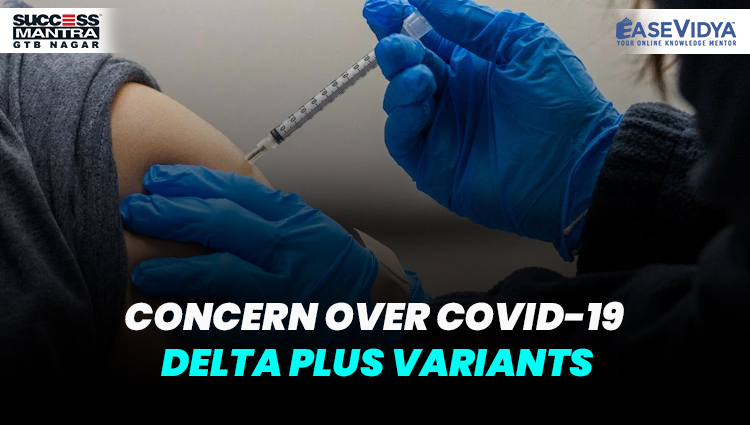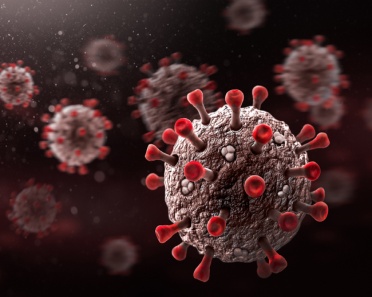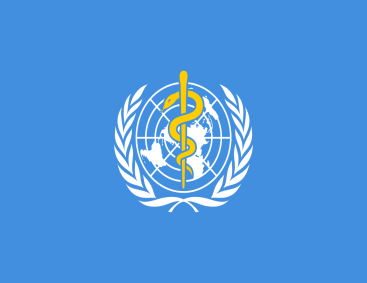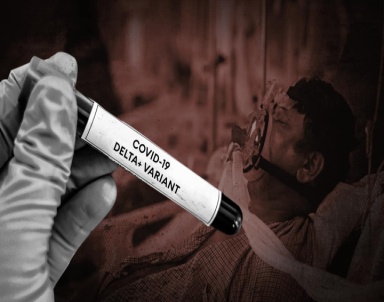
CONCERN OVER COVID 19 DELTA PLUS VARIANTS
CONCERN OVER COVID 19 DELTA PLUS VARIANTS

Recently, the Union Ministry of Health and Family Welfare (MoHFW), has warned people against the new Covid-19 strain ‘Delta Plus’ (DP). There is fear that this new variant may spark the third wave of Covid-19.
ABOUT THE 'DELTA PLUS' VARIANT
Delta plus (B.1.617.2.1/(AY.1) is a new variant of the SARS-CoV-2 coronavirus formed due to a mutation in the Delta strain of the virus (B.1.617.2 variant). It is technically the next generation of SARS-COV-2. This mutant of Delta was first detected in Europe in March 2021. The Delta variant that was first detected in India (in February 2021) eventually became a huge problem for the whole world. However, the Delta Plus variant, at present, is limited to smaller areas in the country. It is resistant to monoclonal antibodies cocktail. Since it’s a new variant, its severity is still unknown. People reported symptoms like headaches, sore throats, runny noses, and fever.
The World Health Organisation (WHO) is tracking this variant as part of the Delta variant, it is doing so for other Variants of Concern with additional mutations.
Transmissibility: It has acquired the spike protein mutation called K417N which is also found in the Beta variant first identified in South Africa. The spike protein is used by SARS-CoV-2, the virus which causes Covid-19, to enter the host cells. Some scientists fear that the mutation combined with other existing features of the Delta variant could make it more transmissible.
MAJOR CONCERNS RELATED TO THE VARIANT
Multiple studies are ongoing in India and globally to test the effectiveness of vaccines against the Delta plus Covid-19 mutation. India's health ministry warned that regions where it has been found "may need to enhance their public health response by focusing on surveillance, enhanced testing, quick contact-tracing, and priority vaccination." There are worries Delta Plus would inflict another wave of infections on India after it emerged from the world’s worst surge in cases only recently. Just over 4% of Indians are fully vaccinated and about 18% have received one dose so far.
INDIAN VARIANT NAMED AS 'KAPPA' & 'DELTA' BY WHO

The B.1.617.1 and B.1.617.2 COVID-19 variants that were first identified in India, have been named as ‘Kappa’ and ‘Delta’ respectively by the World Health Organisation. The global health agency has named various variants of COVID-19 using Greek alphabets to simplify the public discussion as well as to help in removing the stigma from the names. The announcement by the WHO came on May 31, 2021, nearly three weeks after India objected to B.1.617 mutant of the Coronavirus being termed as an ‘Indian variant’ in media reports. The Union Health Ministry of India pointed out that the UN’s top health body has not used the word ‘Indian’ for this strain in its document.
REASON BEHIND DECIDING THE NAMES OF COVID VARIANTS
The World Health Organisation, while announcing the new naming system ‘making them simple, easy to say and remember', stated that it is ‘stigmatizing and discriminatory’ to call the COVID-19 variants by names of the nations they were first detected in. The new labels will not replace the existing scientific names, which convey significant scientific information and will continue to be used in research. The naming system aims to prevent calling the variants by the places where they are detected. WHO pointed that no country must be stigmatized for detecting and reporting the COVID-19 variants. There is a need for robust surveillance for the variants, molecular, and sequencing to be carried out and shared.
The global health agency also encouraged nations and others to adopt these names as they will ease the public discussion about the global COVID-19 Variants of Concern and Interest.
NAMES GIVEN TO DIFFERENT COVID VARIANTS

WHO has named the B.1.617.1 COVID-19 variant as ‘Kappa’ while the B.1.617.2 variant has been dubbed as ‘Delta’. Both the variants were first found in India. The B.1.1.7 COVID-19 strain which was first detected in the United Kingdom will be known as ‘Alpha’. The B.1.351 variants detected in South Africa are now called ‘Beta’. 1 variant which was first found in Brazil is ‘Gamma’ and the P.2 variant is ‘Zeta’. The COVID-19 strains that were found in the United States are ‘Epsilon’ and ‘Iota’.
The WHO, in order to assist with public discussion of variants, has convened a group of scientists from the WHO Virus Evolution Working Group, Nextstrain, representatives from GISAID, the WHO COVID-19 reference laboratory network, Pango, and additional experts in virological, microbial nomenclature, and communication from different countries and agencies to consider easy to pronounce and non-stigmatizing labels for VOCs and VOIs. The WHO informed that at the present time, this group of experts convened by the UN health body has recommended labels using letters of the Greek Alphabet, i.e. Alpha, Beta, Gamma, which will be easier and much more practical to discuss by the non-scientific audiences.
CONTROVERSY ON THE TERM ‘INDIAN VARIANT'
On May 12, 2021, the Union Health Ministry of India had dismissed the media reports that used the term Indian Variant for the B.1.617 mutant strain of COVID-19, which the WHO had recently said was a ‘variant of global concern’. The Ministry in an official statement had said that several media reports have covered the news of WHO classifying the B.1.617 as a variant of global concern. Some of the reports have termed the B.1.617 variant of COVID-19 as an Indian variant, these reports are without any basis and are unfounded.
VARIANT OF VIRUSES
Variants of a virus have one or more mutations that differentiate it from the other variants that are in circulation. While most mutations are deleterious for the virus, some make it easier for the virus to survive. The SARS-CoV-2 (Corona) virus is evolving fast because of the scale at which it has infected people around the world. High levels of circulation mean it is easier for the virus to change as it is able to replicate faster. The original pandemic virus (founder variant) was Wu.Hu.1 (Wuhan virus). In a few months, variant D614G emerged and became globally dominant. Indian SARS-CoV-2 Consortium on Genomics (INSACOG) is a multi-laboratory, multi-agency, pan-India network to monitor genomic variations in the SARS-CoV-2. Global Initiative on Sharing All Influenza Data (GISAID) is a public platform started by the World Health Organization (WHO) in 2008 for countries to share genome sequences. The GISAID Initiative promotes the international sharing of all influenza virus sequences, related clinical and epidemiological data associated with human viruses, and geographical as well as species-specific data associated with avian and other animal viruses.
TEST YOURSELF
Q.1 Recently, the Union Ministry of Health and Family Welfare (MoHFW), has warned people against which of the following variants that may spark the third wave of Covid-19?
- Delta Plus Variant: ANSWER
- Kappa Delta Variant
- Alpha Variant
- None of the following
Q.2 Consider the given statements & state which of gh following is/are incorrect in the reference to the Delta Plus Variant in India?
- Delta plus (B.1.617.2.1/(AY.1) is a new variant of the SARS-CoV-2 coronavirus formed due to a mutation in the Delta strain of the virus.
- It is technically the next generation of SARS-COV-2.
- This mutant of Delta known as 'Delta plus Variant' was first detected in Africa & South America especially Brazil in March 2021: ANSWER
- None of the following
Q.3 The B.1.617.1 and B.1.617.2 COVID-19 variants that were first identified in India, have been named as ____________ respectively by the World Health Organisation?
- SARS-CoV-2 Alpha variant & Delta Variant
- Zeta & Lambda Variant
- Lambda & SARS-CoV-2 Alpha variant
- Kappa & Delta Variant: ANSWER
Q.4 Which of the following vaccines of the world have been found the most effective against the Delta Variant of SARS-COV-2 in the recent study?
- Covishield & Covaxin
- Sputnik Vaccine: ANSWER
- SinoPharm vaccine
- None of the above
Q.5 Consider the given statements & state which of the following is/are correct in the reference to the above mentioned passage?
- Variants of a virus have one or more mutations that differentiate it from the other variants that are in circulation. While most mutations are deleterious for the virus, some make it easier for the virus to survive.
- Indian SARS-CoV-2 Consortium on Genomics (INSACOG) is a multi-laboratory, multi-agency, pan-India network to monitor genomic variations in the SARS-CoV-2.
- Only I follows
- Only II follows
- Both I & II follows: ANSWER
- None of the above












0 Comment